I've just returned from a few days away in Copenhagen. Number one on my 'to do' list was the M/S Museet for Sofart, the Danish Maritime Museum. It is based in Helsingor, 50km north of Copenhagen. From 1915 it was housed in the nearby Kronburg Castle but in 2013 it moved into a new architecturally amazing building set in a dry dock. The whole museum is underground and I loved the light, steps, slopes and innovative use of the space.
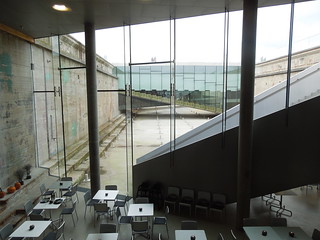
The exhibition was pretty darned good too.
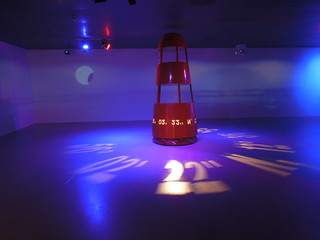
The museum is well themed with innovative use of video and displays. As ever I was itching for the navigation section. There were a few interactive displays showing you how sailors calculate latitude and longitude using sextants and chronometers but apart from that there was the standard bevy of glass cases with old instruments in. I'm sure there must be a creative and fun way to teach navigation but this hasn't quite hit it on the spot.
Anyway, a horde of sextants, octants and all things for measuring angles.
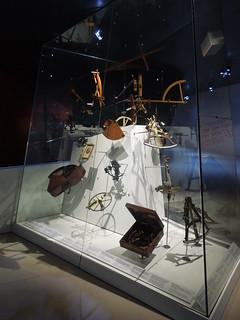
Compasses.
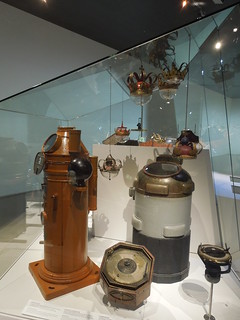
Globes and a copper plate.
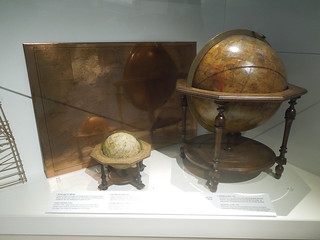
Measuring speed.

Depth measurement tools.
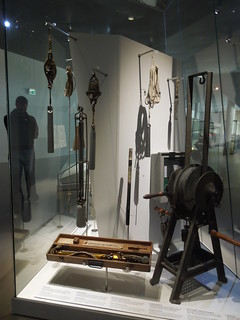
This Decca display brought back memories and made me feel ancient.

When I first started work in 1991 Decca was still being used, and the trials and tribulations of sunrise and sunset beset us all. I never did see a Decca tie worn though.
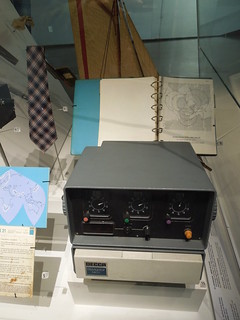
A Danish chart symbology guide.
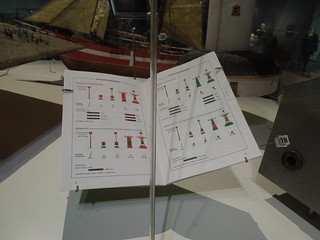
The section on international trade was interesting. Ranging from the beginnings of organised international trade - tea, china, cloth etc - right through to the huge container ships of today.
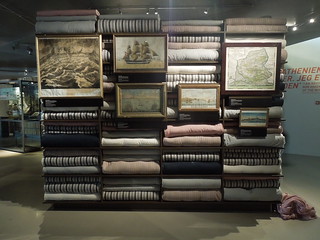
I played a game involving buying, shipping and selling goods around the globe. Imagine my thrill of coming 4th. Oh, perhaps only 5 people had played that day?
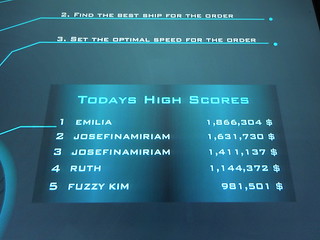
Maersk had a big look in which is not surprising since they are a Danish company. I think I read that they move 10% of international trade which sounds about right. They have 600 ships moving 4 million TEU every year between Europe and Asia (let alone the rest of the world). A TEU is a Twenty Foot Equivalent Unit. It is hard to get one's head around the quantity of goods we are talking about here.
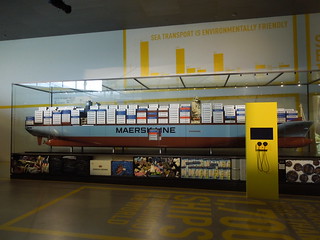
Helsingor itself hosts a well maintained harbour. The route between the Maritime Museum and the railway station passes a couple of boats. One obviously looks like a tourist vessel, but not sure about the Garmin one. Perhaps used for paying day trippers?
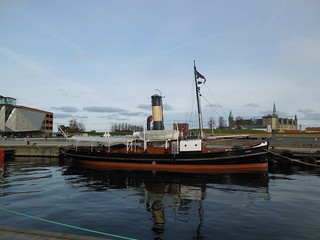
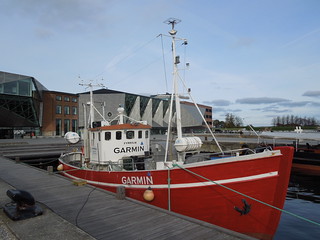
Helsingor harbour marks are well painted.
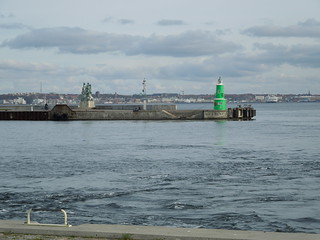
And I liked the plastic fish. Better plastic on the quayside than out in the ocean eh?
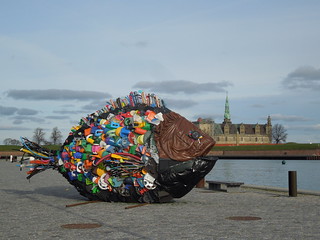

The exhibition was pretty darned good too.

The museum is well themed with innovative use of video and displays. As ever I was itching for the navigation section. There were a few interactive displays showing you how sailors calculate latitude and longitude using sextants and chronometers but apart from that there was the standard bevy of glass cases with old instruments in. I'm sure there must be a creative and fun way to teach navigation but this hasn't quite hit it on the spot.
Anyway, a horde of sextants, octants and all things for measuring angles.

Compasses.

Globes and a copper plate.

Measuring speed.

Depth measurement tools.

This Decca display brought back memories and made me feel ancient.

When I first started work in 1991 Decca was still being used, and the trials and tribulations of sunrise and sunset beset us all. I never did see a Decca tie worn though.

A Danish chart symbology guide.

The section on international trade was interesting. Ranging from the beginnings of organised international trade - tea, china, cloth etc - right through to the huge container ships of today.

I played a game involving buying, shipping and selling goods around the globe. Imagine my thrill of coming 4th. Oh, perhaps only 5 people had played that day?

Maersk had a big look in which is not surprising since they are a Danish company. I think I read that they move 10% of international trade which sounds about right. They have 600 ships moving 4 million TEU every year between Europe and Asia (let alone the rest of the world). A TEU is a Twenty Foot Equivalent Unit. It is hard to get one's head around the quantity of goods we are talking about here.

Helsingor itself hosts a well maintained harbour. The route between the Maritime Museum and the railway station passes a couple of boats. One obviously looks like a tourist vessel, but not sure about the Garmin one. Perhaps used for paying day trippers?


Helsingor harbour marks are well painted.

And I liked the plastic fish. Better plastic on the quayside than out in the ocean eh?

No comments:
Post a Comment